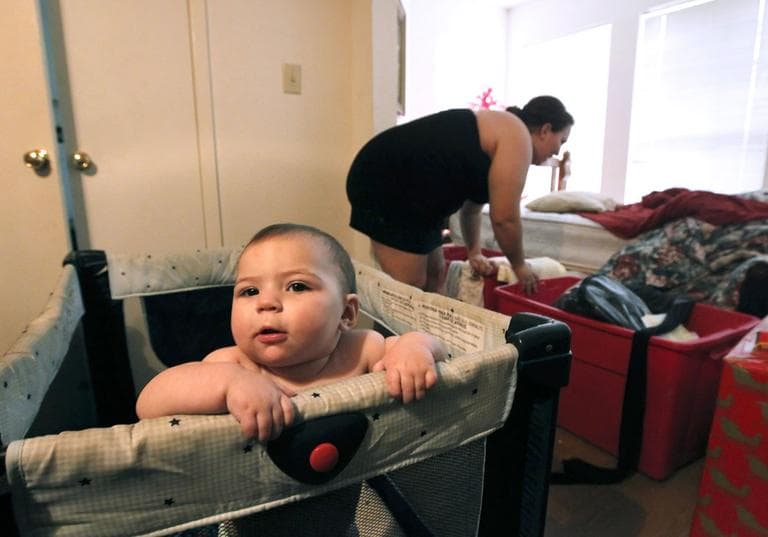Advertisement
Upward Mobility In America Now
ResumeStuck in America. Upward mobility—the American Dream—is at an all time low. We look at what’s happened to the ladder.

New census report out this month on Americans and money. The income gap grows again. The big majority of Americans see no gains in a pale recovery. Median household income, down 8 percent from 2007. Middle class, falling. The poor, going nowhere.
Only the well-to-do on the rise. Economic mobility – “movin’ on up” – is at the heart of the American narrative. Now, a lot of Americans are going nowhere, or down. Who is moving? And who’s not? And what will it take the move the country again?
This hour, On Point: going somewhere, going nowhere, in America.
-Tom Ashbrook
Guests
Frank Bass, data editor for Bloomberg News and author of the forthcoming book, "Guide to the US Census"
Isabel Sawhill, co-director of the Center on Children and Families and the Budgeting for National Priorities Project at the Brookings Institution
Douglas Besharov, professor at the University of Maryland’s School of Public Policy.
Jeff Faux, founding president at the Economic Policy Institute.
From Tom's Reading List
The New York Times "A new study by researchers at the Brookings Institution shows that about two in three Americans achieves a middle-class lifestyle by middle age — and delves deeply into who makes it there and how. Isabel V. Sawhill, Scott Winship and Kerry Searle Grannis tackled the question of why some children make it to the middle class and others do not, studying criteria that tend to be indicative of later economic success and examining how race, gender and family income come into play."
Brookings "Americans have an unusually strong belief in meritocracy. In other nations, circumstances at birth, family connections, and luck are considered more important factors in economic success than they are in the U.S. This meritocratic philosophy is one reason why Americans have had relatively little objection to high levels of inequality—as long as those at the bottom have a fair chance to work their way up the ladder."
Brookings Institution Up Front Blog "The media is full of commentary about Mitt Romney’s suggestion that people who do not pay income taxes are lacking in personal responsibility. My view is that personal responsibility matters. In fact, Governor Romney has cited more than once a Brookings study (done with my colleague Ron Haskins). The study shows that if you do just three things: stay in school at least through high school, don’t have a child until you’re married and over 21, and work full-time, your chances of being poor are only 2 percent and your chances of joining the middle class are 74 percent."
This program aired on September 26, 2012.